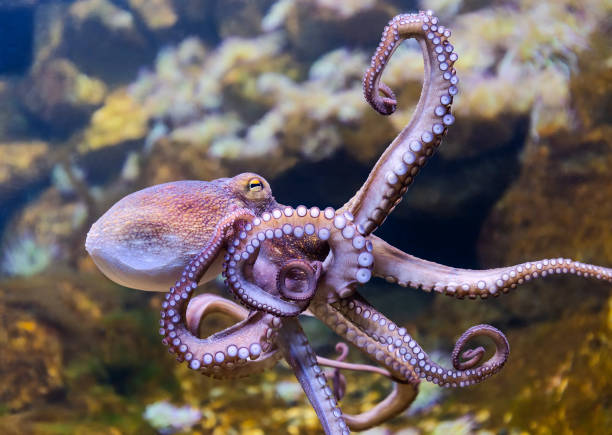Unraveling the Intrigue of the Octopus: A Fascinating Deep-Dive into the World of Our Eight-Armed Friends
Octopuses, the eight-armed mollusks that reside in our oceans, have long been a source of fascination and intrigue. These intelligent creatures possess a unique blend of physical and cognitive abilities that set them apart from the rest of the animal kingdom. In this article, we delve into the captivating world of octopuses, discussing their evolutionary journey, current research findings, and the potential implications for human society.

The Evolutionary Journey of Octopuses: Masters of Adaptation
Octopuses belong to the taxonomic class Cephalopoda, which includes squid and cuttlefish. Their evolution dates back over 400 million years, during which they have developed a range of adaptations that allow them to thrive in diverse marine environments. For instance, the majority of octopuses are equipped with specialized pigment cells called chromatophores that enable them to change their skin color and texture in a split second, providing them with unparalleled camouflage abilities.
Latest Discoveries: A Peek into the Octopus Mind
Recent scientific research has revealed fascinating insights into the cognitive abilities of octopuses. Contrary to the brain-centric model of intelligence in most animals, octopuses have a distributed nervous system, with approximately two-thirds of their neurons located in their arms. This decentralized system allows each arm to function semi-independently, providing the octopus with remarkable dexterity and sensory capabilities.
The Octopus Bioprospecting: From Camouflage to Medicine
Octopuses have been a subject of interest in various fields, including bioprospecting. Bioprospecting is the exploration of biodiversity for new resources of medical and commercial value, and octopuses, with their unique characteristics and abilities, have much to offer. For instance, their camouflage abilities have inspired new ideas in military technology, while their venom has potential applications in drug development.
The Economic Impact of Octopuses: A Delicate Balance
Despite their fascinating qualities, octopuses are under threat due to overfishing and habitat destruction. Octopus fisheries have become a significant global industry, valued at hundreds of millions of dollars. However, the sustainability of this practice is under scrutiny, with concerns raised about the long-term impact on octopus populations and broader marine ecosystems.
Conservation Efforts: Safeguarding Our Eight-Armed Friends
To protect octopuses and their habitats, numerous conservation initiatives have been launched. These range from regulations on octopus fishing to the establishment of marine protected areas. Public education campaigns also play a crucial role in raising awareness about the importance of octopuses and the threats they face.
In conclusion, the octopus is a creature of remarkable intrigue and potential, offering valuable insights into evolutionary biology, cognitive science, and bioprospecting. However, the survival of these extraordinary creatures is in our hands. Through sustainable practices and conservation efforts, we can ensure that octopuses continue to thrive, contributing to the richness and diversity of life on our planet.





